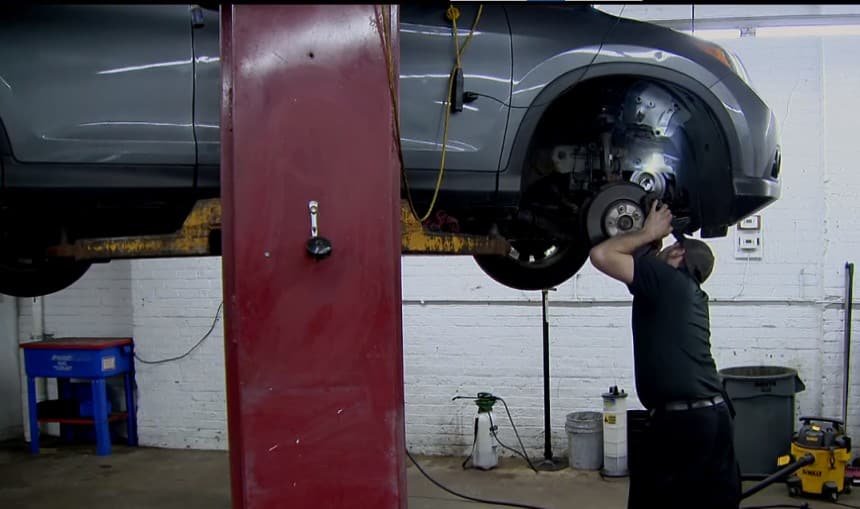When it comes to auto repair, there are two options: DIY (Do-It-Yourself) or hiring a professional. Both approaches have their own set of pros and cons, and it’s important to consider these factors before making a decision. In this article, we will explore the advantages and disadvantages of both DIY and professional auto repair.
DIY Auto Repair
DIY auto repair refers to the practice of fixing your own vehicle without the assistance of a professional mechanic. Many car owners choose this option for various reasons. Let’s take a look at the pros and cons of DIY auto repair.
Pros of DIY Auto Repair
1. Cost Savings
One of the main reasons why people opt for DIY auto repair is the potential cost savings. By doing the repairs yourself, you can avoid the labor costs associated with hiring a professional mechanic. Additionally, you have the flexibility to choose affordable aftermarket parts instead of expensive OEM (Original Equipment Manufacturer) parts.
2. Learning Experience
DIY auto repair provides a valuable learning experience. By working on your own vehicle, you gain a better understanding of its mechanics and how different components work together. This knowledge can be useful in the future when you encounter other issues with your car.
3. Convenience and Flexibility
When you choose DIY auto repair, you have the freedom to work on your vehicle at your own pace and convenience. You can schedule repairs based on your availability and avoid the hassle of taking your car to a repair shop. This can be particularly beneficial for minor repairs or routine maintenance tasks.
Cons of DIY Auto Repair
1. Lack of Expertise
One of the biggest drawbacks of DIY auto repair is the lack of professional expertise. Unless you have extensive knowledge and experience in automotive repair, there is a risk of making mistakes or improper repairs. This can lead to further damage to your vehicle and potentially higher repair costs in the long run.
2. Time and Effort
Repairing a vehicle requires time, effort, and patience. Depending on the complexity of the repair, it may take you several hours or even days to complete the job. If you have a busy schedule or lack the necessary tools, DIY auto repair may not be a feasible option.
3. Limited Resources
As a DIYer, you may not have access to the same resources and equipment as a professional repair shop. This can make certain repairs more challenging or even impossible to do on your own. Some repairs may require specialized tools or diagnostic equipment that are not readily available to the average car owner.
Professional Auto Repair
Professional auto repair involves taking your vehicle to a certified mechanic or a repair shop. While it may come at a higher cost, there are several advantages to choosing professional auto repair.
Pros of Professional Auto Repair
1. Expertise and Experience
Professional mechanics have the knowledge, skills, and experience to accurately diagnose and repair automotive issues. They have undergone extensive training and are familiar with a wide range of makes and models. This expertise ensures that your vehicle is in capable hands and increases the chances of a successful repair.
2. Warranty and Guarantees
Many professional repair shops offer warranties or guarantees on their work. This means that if the repaired component fails within a certain period, they will fix it at no additional cost. Having this peace of mind can be reassuring, especially for major repairs or when dealing with expensive parts.
3. Access to Specialized Tools and Equipment
Professional repair shops are equipped with specialized tools and diagnostic equipment that are necessary for complex repairs. They have access to manufacturer-specific software and resources, allowing them to accurately diagnose and address issues that may not be easily identifiable to the average car owner.
Cons of Professional Auto Repair
1. Higher Cost
One of the main drawbacks of professional auto repair is the higher cost compared to DIY. Professional mechanics charge for their expertise and labor, which can significantly increase the overall repair bill. Additionally, OEM parts used by professional repair shops tend to be more expensive than aftermarket alternatives.
2. Dependence on Others
When you choose professional auto repair, you are dependent on the availability and schedule of the repair shop. This means that you may need to wait for an appointment or leave your vehicle at the shop for an extended period. This can be inconvenient, especially if you rely heavily on your car for daily transportation.
3. Lack of Control
When you hand over your vehicle to a professional mechanic, you are relinquishing control over the repair process. You have to trust that they will correctly diagnose the problem and use the appropriate parts and techniques. For some car owners, this lack of control can be a disadvantage.
Conclusion
Choosing between DIY and professional auto repair requires careful consideration of the pros and cons. DIY repairs can save you money and provide a valuable learning experience, but they come with the risk of mistakes and limited resources. On the other hand, professional repairs offer expertise, warranties, and access to specialized tools, but they can be more expensive and may require you to depend on others. Ultimately, the decision depends on your skill level, available resources, and the complexity of the repair. Read more about diy vs. professional car maintenance here.

